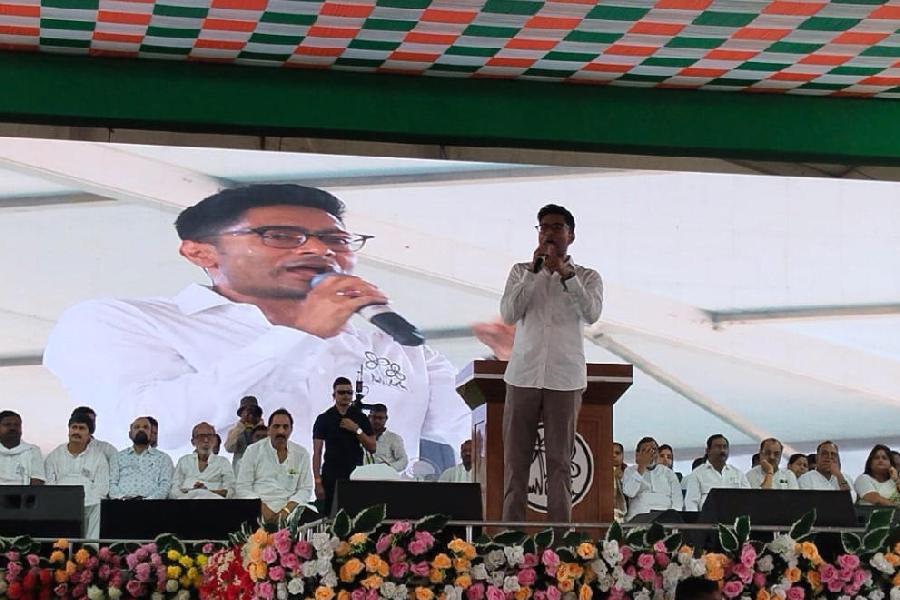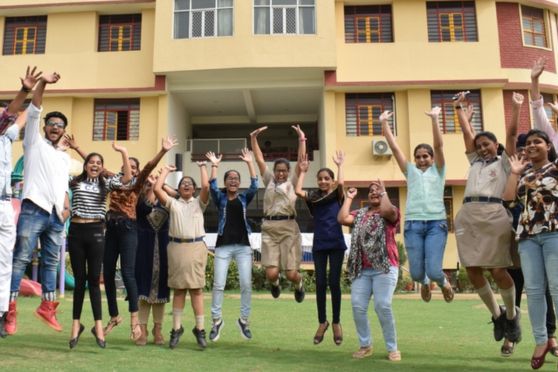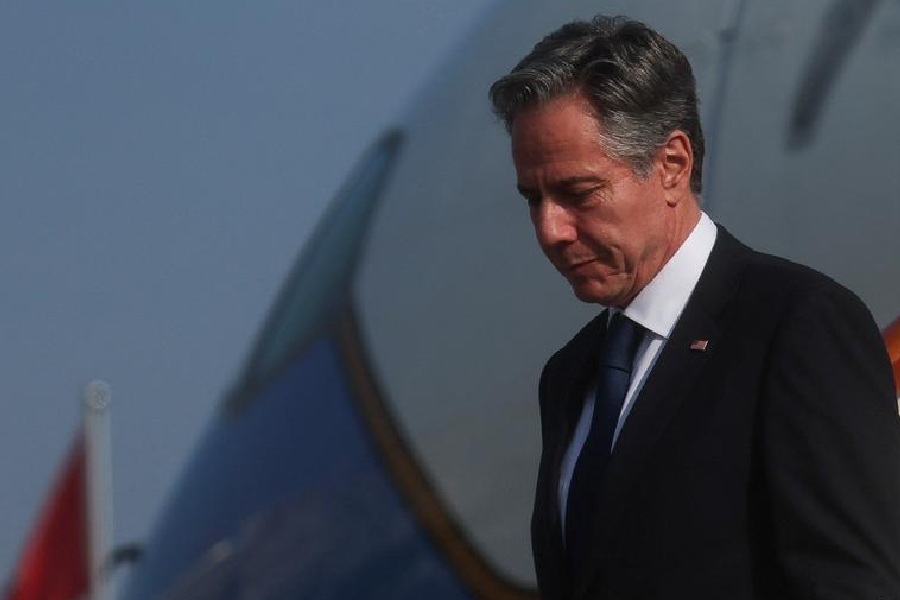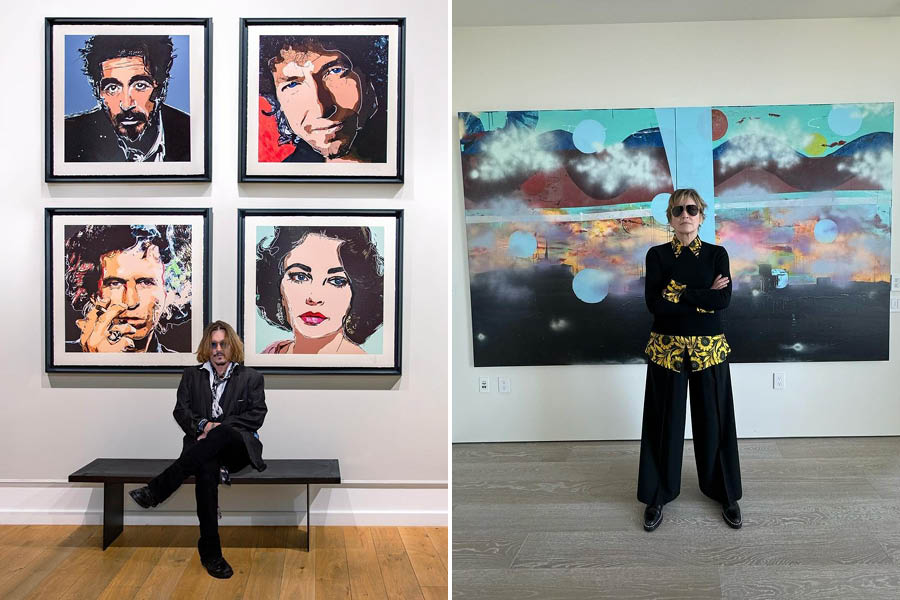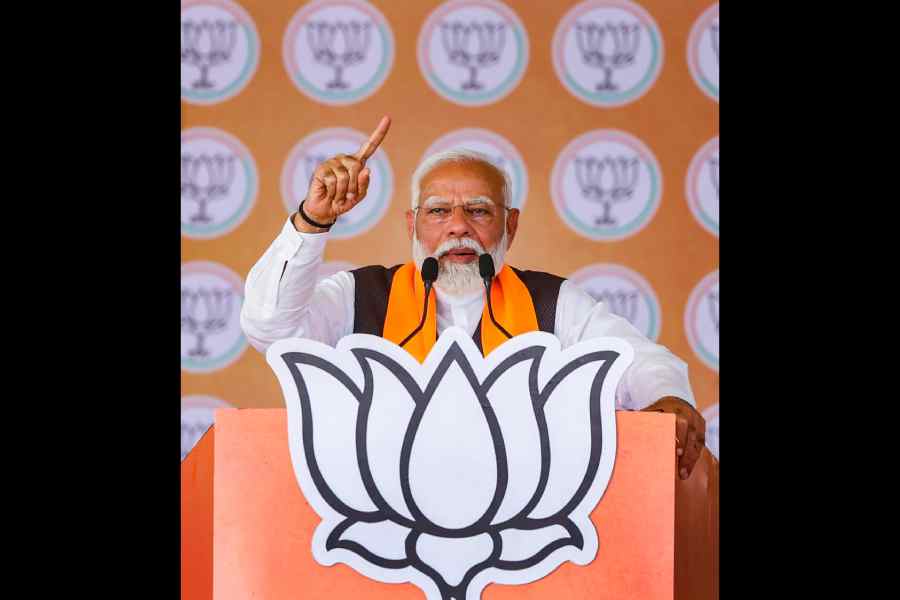An orphan who had studied up to Class VIII used YouTube videos to successfully navigate a maze of bureaucracy for six years to get a passport.
Vishalmridul Mandal has paved the way for children in Delhi’s care institutions to get official recognition that all citizens are entitled to.
Mandal, now 29, was brought up in orphanages here after an NGO spotted him as a child rag-picker at the Hazrat Nizamuddin railway station in 1998. He began what many would consider a futile quest for a passport, in Mumbai in 2016, after seeing colleagues at a hotel leave for better jobs on cruise ships.
“I had moved to Mumbai in 2014 and was staying with an NGO opposite Mumbai Central railway station. I volunteered at their child helpline and during the day worked with housekeeping at Taj Lands End. My friends started to work on cruise liners and go abroad. I thought, ‘Even I can do this’,” Mandal, who now works as a domestic housekeeper in Gurgaon, told The Telegraph.
His ordeal began when he applied for a passport from his address at the NGO, in Gilder Lane Municipal School, in 2016.
“The passport office cleared my documents but when the police came for verification, they said the building was government (civic) property and they could not accept it as my residence,” Mandal said.
“The NGO too said that it had been given temporary permission to use the building, and while I had got an Aadhaar card and voter card from the address, I could not apply for a passport from there.”
Mandal’s job contractor at the hotel then allowed him to stay in the accommodation for employees in the basement, and gave him a letter saying these were his quarters.
“I changed the address on my Aadhaar and voter card. Again, the passport office cleared it but the police said they didn’t approve workplace addresses given as residence, and asked me to apply from where I was born,” Mandal said.
“Whenever anyone mentioned chai paani (euphemism for a bribe), I would fold my hands and say, ‘I am sorry’. In the orphanages I grew up in, I was taught to be honest, always.”
Until he was 18, Mandal didn’t know where he had been born. It was only in 2010 that he managed to get details of his birth from the child welfare committee’s (CWC) files in Delhi. He was issued a birth certificate only recently, after a long legal battle.
“I was only six when I started going to the day-care centre of Project Concern International at Nizamuddin, and I couldn’t remember clearly how I had landed up there,” he said.
“The CWC had my file from that time. I learnt that I had run away from my maternal aunt Nisha Dubey’s home and that I had been living with her after my mother remarried following my father’s death.
Mandal said: “I was born in Delhi; my mother was a domestic worker and father, a rickshaw-puller in Daryaganj. We lived in Dattaram Basti, a slum on the banks of the Yamuna. I was able to contact my aunt and learnt that my mother was no more.”
Mandal returned to Delhi in 2018 to work at the Taj Mahal Hotel. The NGO Prayas Juvenile Aid Centre, which ran the last orphanage where he lived, in Jahangirpuri, allowed him to stay at its children’s home in Tughlakabad and apply for a passport from there. This time the police refused clearance saying an adult couldn’t apply from the address of a children’s home.
“The pandemic began and I was out of work, so I went to the home of another maternal aunt, Aarti Naskar, in my mother’s native village of Jibantala in South 24-Parganas district (Bengal),” Mandal said.
He applied for a passport again. “The policemen who came for verification questioned all the villagers, who said they knew my mother. My aunt filed an affidavit, as asked by the authorities, before the judicial magistrate, first class, affirming my residence there.”
In Jibantala, Mandal also obtained a Scheduled Caste certificate, based on his family background and verified by revenue authorities.
His application was again rejected on the ground that the details of his birth were unclear. This despite the external affairs ministry’s 2016 guidelines that say that people without birth certificates can give alternative proof such as school transfer certificates, Aadhaar, voter card, or a letter from their orphanage as proof of their date of birth.
Bengal police officers suggested he go back to Delhi and try his luck again.
Mandal did not give up. He emailed a whole galaxy of bureaucrats in Bengal and the Centre, and filed a public grievance online in 2021. Women and child development ministry officials at the Centre and in Bengal intervened, writing on his behalf to police and government officials, but there was still no sign of a passport.
Mandal finally approached the CWC in Delhi. After much back and forth between the CWC and the North Delhi Municipal Corporation, he was granted a birth certificate. But it did not mention his surname, forcing him to apply again to get it included.
He applied for a passport again from Jibantala last year. “The police then asked if I was actually Indian and not a Bangladeshi,” Mandal said.
“I was born here. My parents were Indians who worked in Delhi. I was brought up in orphanages under the supervision of the Delhi government. I had even shifted my identity cards to Jibantala. What more proof could I give of being Indian?”
Mandal turned to YouTube. “I saw videos of how to file petitions in courts. I read the Juvenile Justice Act and all the rules I could find online about passports. I learned about change.org and started a petition to CM (chief minister) Mamata Banerjee.
“But I got no help in Bengal, so I came back to Delhi. The CWC decided to take up my case afresh and the chairperson, Varun Pathak, helped me at every step.”
In April this year, he was issued an orphan certificate by the CWC bench of magistrates after revenue officials carried out verifications at all the orphanages Mandal had lived in. He was then encouraged to reapply for a passport from his aunt Nisha Dubey’s address here in Khajoori Khas.
“Our systems have become so rigid that it is difficult for people to get what they deserve. He should have got a birth certificate and an orphan certificate while at the child care institution,” Pathak, chairperson of the CWC for New Delhi and central Delhi, told this newspaper.
“It is a failure of our system. After his case, we are now ensuring that all children in CCIs (child care institutions) in Delhi get their birth certificates.”
Pathak recently ensured that municipal schools admit children whose parents’ names are not known, something that was earlier blocked as the online registration system would only accept a form with both parents’ names.
After the intervention of the CWC, the latest police verification was a breeze. He was finally called to the regional passport office.
“I was asked why my application was repeatedly rejected, and whether I was really a citizen, and why I wanted to go abroad,” Mandal said.
“I told the officer that he had every police verification in front of him. If there was anything lacking, or any crime I had committed, then he should put the passport on hold and tell me what was lacking so that I could ask the Union home ministry or file an RTI. (I told him) I wanted to go abroad to earn a name for myself.”
He told this newspaper that he wanted to go to work in Canada. “It is so beautiful.”
On September 22, he got his passport. “I don’t know how to express my joy. My employer got a cake to celebrate. I am happy also that the CWC has now begun holding special camps in all orphanages to grant birth certificates. I have started another online petition for birth certificates to be given to all orphans,” Mandal said.
He now works as a housekeeper for a Belgian family in Gurgaon and has enrolled for open schooling.
“I have WhatsApped a photo of my passport to all the policemen who had rejected me,” Mandal said. “Some replied saying they knew that it was only possible in Delhi.”



